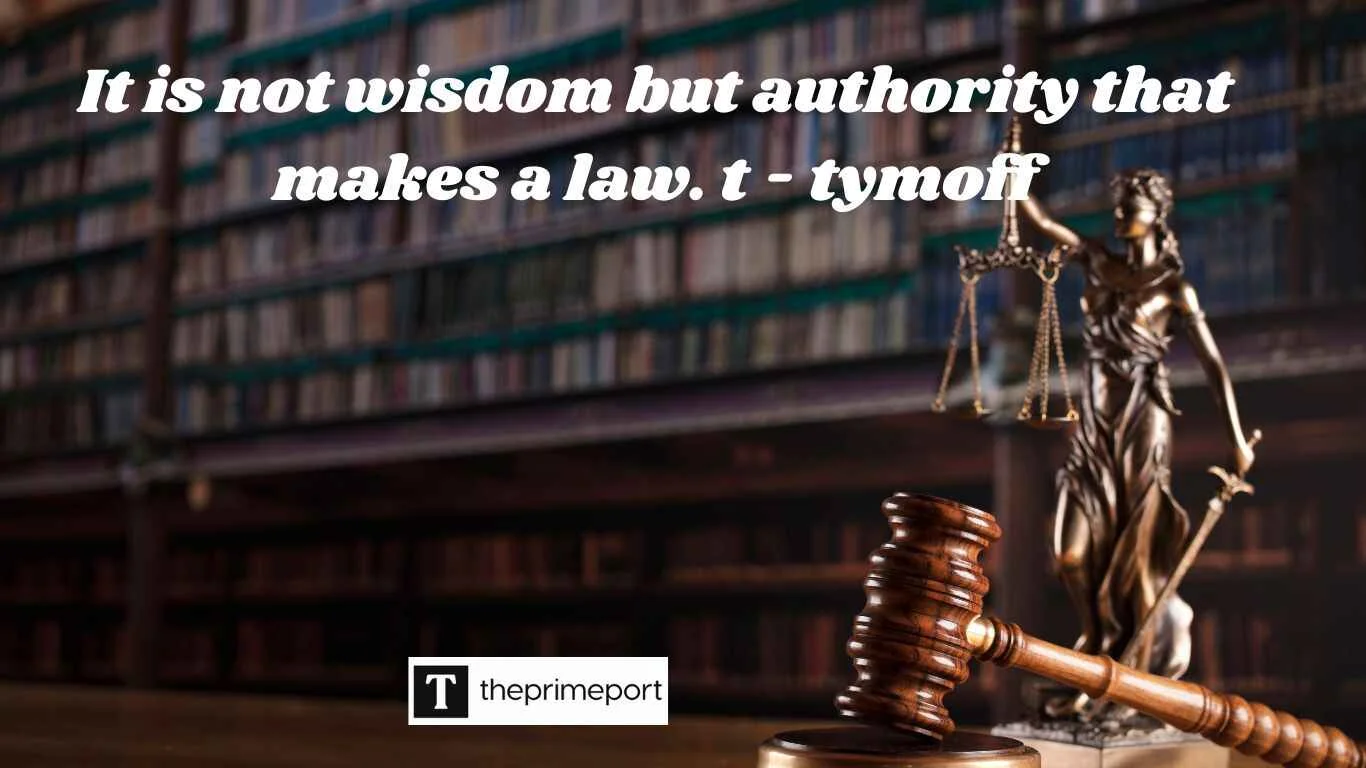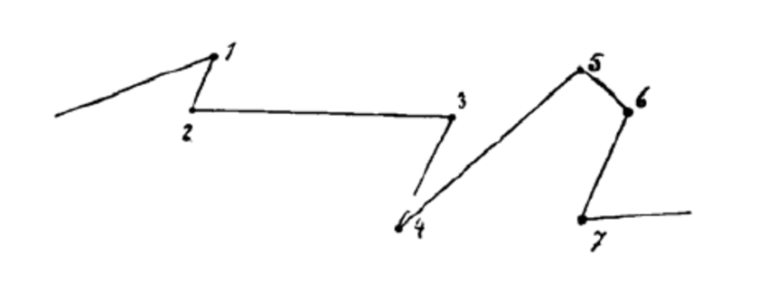It Is Not Wisdom But Authority That Makes a Law: T. Tymoff’s Provocative Legal Insight
The profound quote “It is not wisdom but authority that makes a law. t – tymoff” challenges our fundamental understanding of legal systems, governance, and the nature of legislative power. This thought-provoking statement invites us to critically examine the relationship between wisdom, authority, and the creation of laws that govern societies.
Key Takeaways
- Laws are primarily established through authoritative power
- Wisdom and legal legitimacy are not always synonymous
- Understanding the source of legal authority is crucial to comprehending societal structures
The Philosophical Underpinnings of Legal Authority
Defining Authority in Legal Contexts
When we dissect the statement “it is not wisdom but authority that makes a law. t – tymoff”, we uncover a critical perspective on how laws are fundamentally created and enforced. Authority, in this context, refers to the legitimate power to create, modify, and implement legal frameworks.
Key Characteristics of Legal Authority:
- Institutional backing
- Recognized societal legitimacy
- Power to enforce compliance
- Hierarchical structure of governance
The Disconnect Between Wisdom and Law
The quote suggests a significant gap between:
- Wisdom: Profound understanding, ethical reasoning, and intellectual insight
- Authority: Formal power to establish and enforce rules
This separation implies that laws are not necessarily born from the most intelligent or moral considerations but from the ability to impose and maintain them.
Historical Perspectives on Legal Authority
Ancient Civilizations and Legal Frameworks
Throughout history, legal systems have demonstrated that authority trumps wisdom in law creation:
- Roman Empire: Laws were established by emperors and senators, not always through collective wisdom
- Monarchical Systems: Royal decrees became laws based on absolute authority
- Colonial Legal Structures: Laws were imposed by colonizers, often disregarding local wisdom and cultural nuances
Modern Implications
In contemporary societies, the principle remains consistent:
- Legislative bodies create laws
- Courts interpret laws
- Enforcement agencies ensure compliance
The wisdom behind these laws becomes secondary to their authoritative implementation.
Analyzing the Quote: “It Is Not Wisdom But Authority That Makes a Law. T – Tymoff”
Breaking Down the Key Components
- “Not Wisdom”
- Challenges the assumption that laws are always rationally or ethically derived
- Suggests potential disconnect between intellectual merit and legal standards
- “But Authority”
- Emphasizes the role of power structures
- Highlights the mechanism of law creation
- “Makes a Law”
- Focuses on the process of legal establishment
- Implies a top-down approach to legislation
Philosophical and Legal Interpretations
Different schools of thought offer various perspectives:
- Positivist Legal Theory: Laws are valid because of their source, not their moral content
- Natural Law Theory: Challenges the quote by arguing that laws should reflect fundamental moral principles
- Critical Legal Studies: Examines how power dynamics influence legal systems
Real-World Examples of Authority Trumping Wisdom
Case Studies
- Discriminatory Laws
- Historical segregation laws
- Laws limiting women’s rights
- Legislation restricting minority groups
- Political Regulations
- Laws created to maintain political power
- Suppression of dissent through legal mechanisms
- Regulations benefiting specific interest groups
Consequences of Authority-Driven Legislation
- Potential erosion of social justice
- Marginalization of vulnerable populations
- Reinforcement of existing power structures
The Role of Checks and Balances
Mitigating Authoritarian Legal Approaches
To counteract the potential pitfalls highlighted by the quote, modern democracies have developed:
- Separation of powers
- Constitutional protections
- Judicial review
- Democratic participation mechanisms
Ethical Considerations and Critical Thinking
Questioning Legal Authority
The quote “it is not wisdom but authority that makes a law. t – tymoff” encourages:
- Critical examination of legal frameworks
- Understanding the origin of laws
- Promoting active citizenship
- Challenging unjust legal systems
Developing a Nuanced Perspective
Individuals should:
- Understand the sources of legal authority
- Recognize the potential gap between wisdom and law
- Advocate for more inclusive and just legal processes
Conclusion
The provocative statement “It is not wisdom but authority that makes a law. t – tymoff” serves as a powerful reminder of the complex relationship between power, legislation, and societal governance. While authority remains the primary mechanism for law creation, continued critical examination and democratic participation can help bridge the gap between authoritative power and genuine wisdom.
Final Reflections
- Laws are products of complex power dynamics
- Wisdom should be a continuous aspiration in legal systems
- Active citizenship can drive meaningful legal reforms
References
- Contemporary Legal Philosophy Journals
- Historical Legal Studies
- Sociological Research on Governance
Disclaimer: This article provides a philosophical exploration of the quote and does not constitute legal advice.







